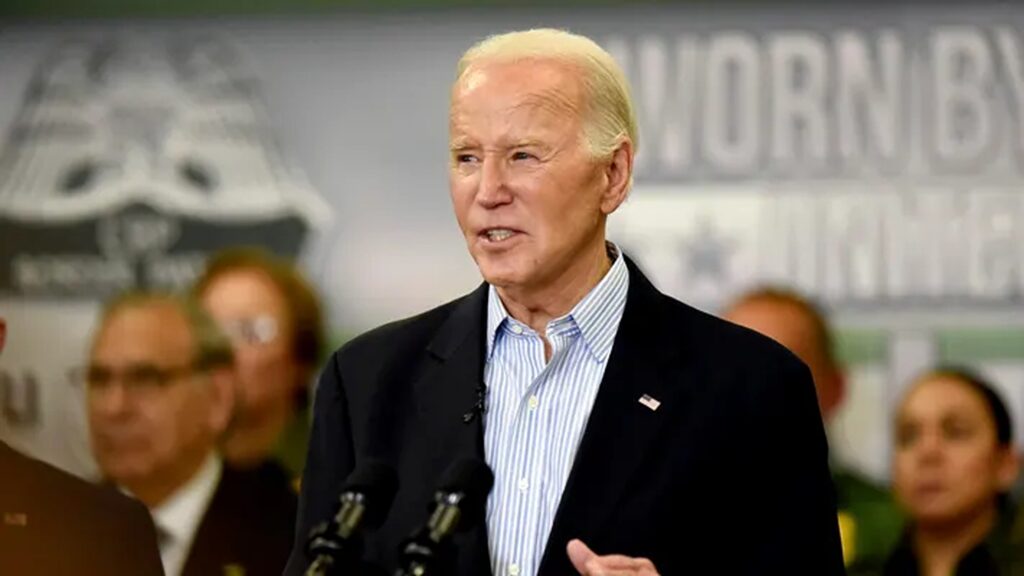Some of the significant U.S. tariff increases on Chinese imports, such as electric vehicles (EVs) and their batteries, computer chips, and medical products, will commence on August 1, as announced by the U.S. Trade Representative’s office on Wednesday.
President Joe Biden plans to maintain the tariffs introduced by his predecessor Donald Trump, while significantly increasing others.
For instance, import duties on Chinese EVs will quadruple to over 100%, and semiconductor duties will double to 50%.
A federal notice from the USTR has opened a 30-day public comment period closing on June 28.
The agency is soliciting feedback on how the proposed tariff increases will impact the U.S. economy, including consumers.
It is also seeking input on whether a proposed 25% duty on medical masks and gloves, and a 50% tariff on syringes, should be higher.
In 2023, the U.S. imported nearly $640 million worth of these medical supplies from China.
The notice details specific tariff codes for 387 product categories affected, along with new duty rates and implementation dates. Tariffs set for 2025 and 2026 will begin on January 1 of those years, according to the USTR.
The proposed tariffs target “products aimed by China for dominance or sectors where the U.S. has recently made significant investments.”
Washington is investing heavily in clean energy tax subsidies to develop U.S. industries like EVs and solar power.
These tariffs are designed to protect American jobs from a potential influx of cheap Chinese imports.
The new measures affect $18 billion worth of current Chinese imports, including steel, aluminum, semiconductors, EVs, critical minerals, solar cells, and cranes, according to the White House.
Although the U.S. imports few Chinese EVs due to existing tariffs, the new measures are expected to have a political impact.
The largest categories, comprising $13.2 billion of targeted imports in 2023, are lithium-ion batteries, per U.S. Census Bureau data.
Duties of 25% are slated to start in 2026 on the $10.9 billion non-vehicle lithium-ion battery category, which is the third-largest U.S. import category from China after smartphones and personal computers.
The U.S. imported $427 billion in goods from China in 2023 while exporting $148 billion, reflecting a persistent trade gap.
The Retail Industry Leaders Association is evaluating the new tariff list and expresses concern over expiring product exclusions.
U.S. Trade Representative Katherine Tai justified the revised tariffs, citing China’s theft of U.S. intellectual property.
Tai has recommended tariff exclusions for hundreds of Chinese industrial machinery imports, including solar product manufacturing equipment.
She emphasized that the formal notice marks a crucial step in implementing “substantial tariff increases on targeted, strategic products.”
The Chinese Embassy in Washington criticized the tariff hikes, warning they would disrupt economic and trade cooperation, increase costs, and harm American companies and consumers.
Beijing announced an anti-dumping probe on certain industrial plastics from the U.S., Europe, Japan, and Taiwan.
The USTR will provide details on applying for machinery exclusions from the tariffs in a separate notice. Any granted exclusions will be retroactive from Wednesday until May 31, 2025.
U.S. Treasury Secretary Janet Yellen mentioned she is encouraging G7 allies to counter China’s industrial policies, though she is not asking them to replicate the new U.S. tariffs.
The G7 includes the U.S., Japan, Germany, France, Britain, Italy, and Canada.
